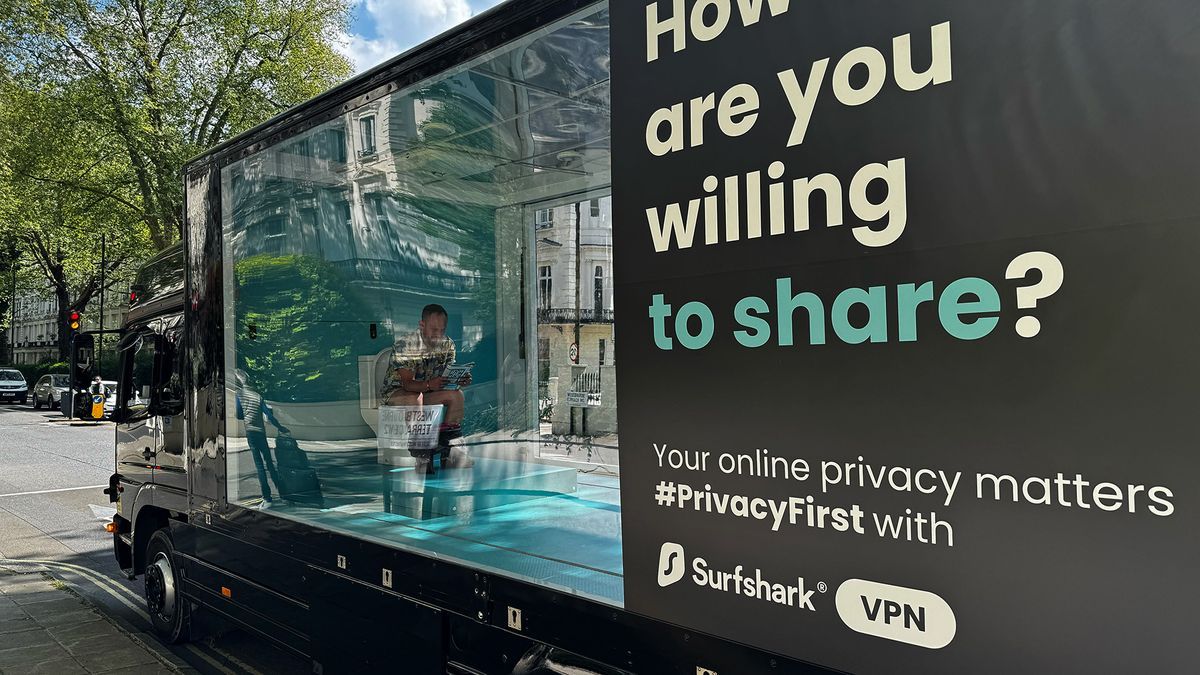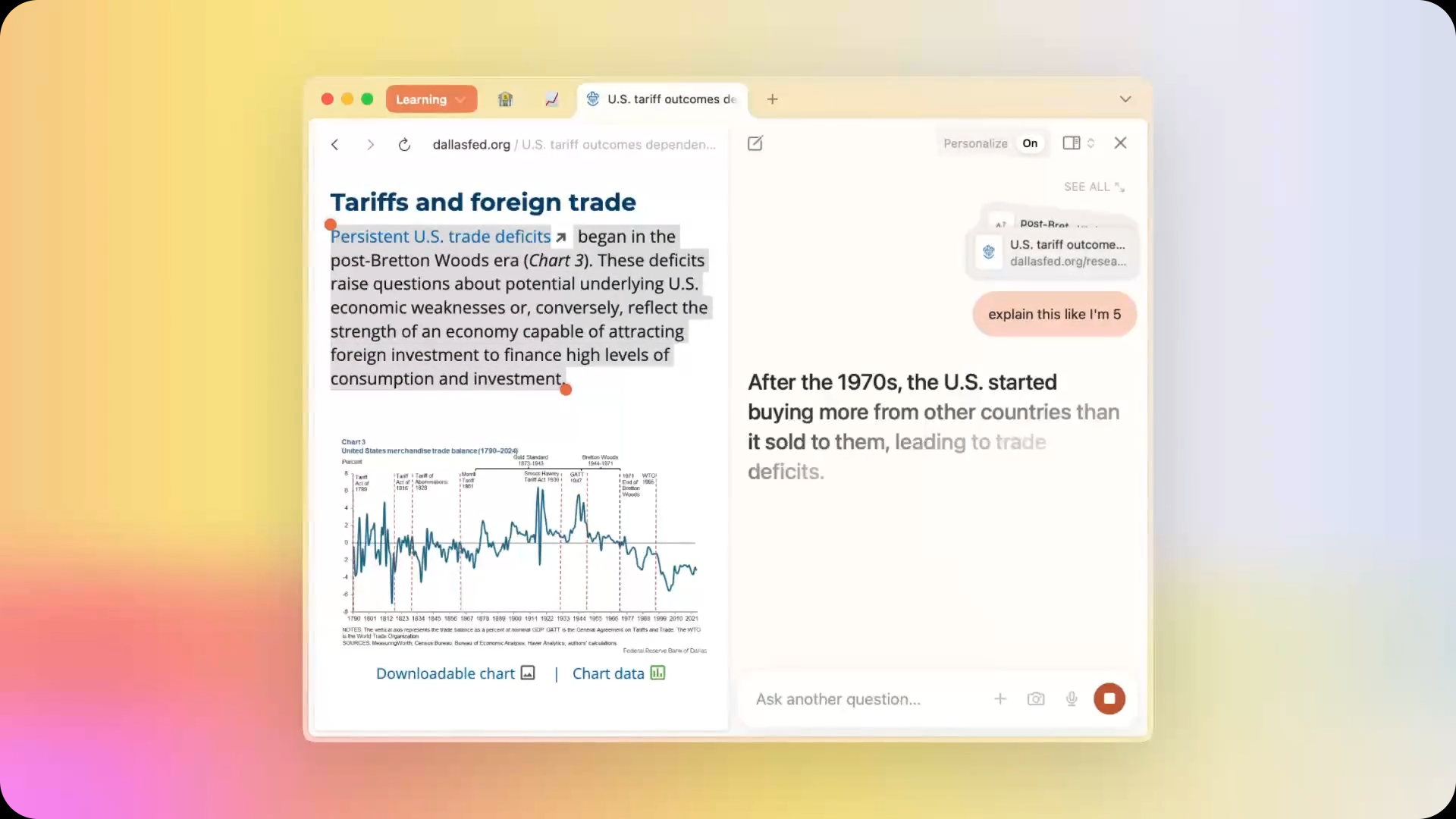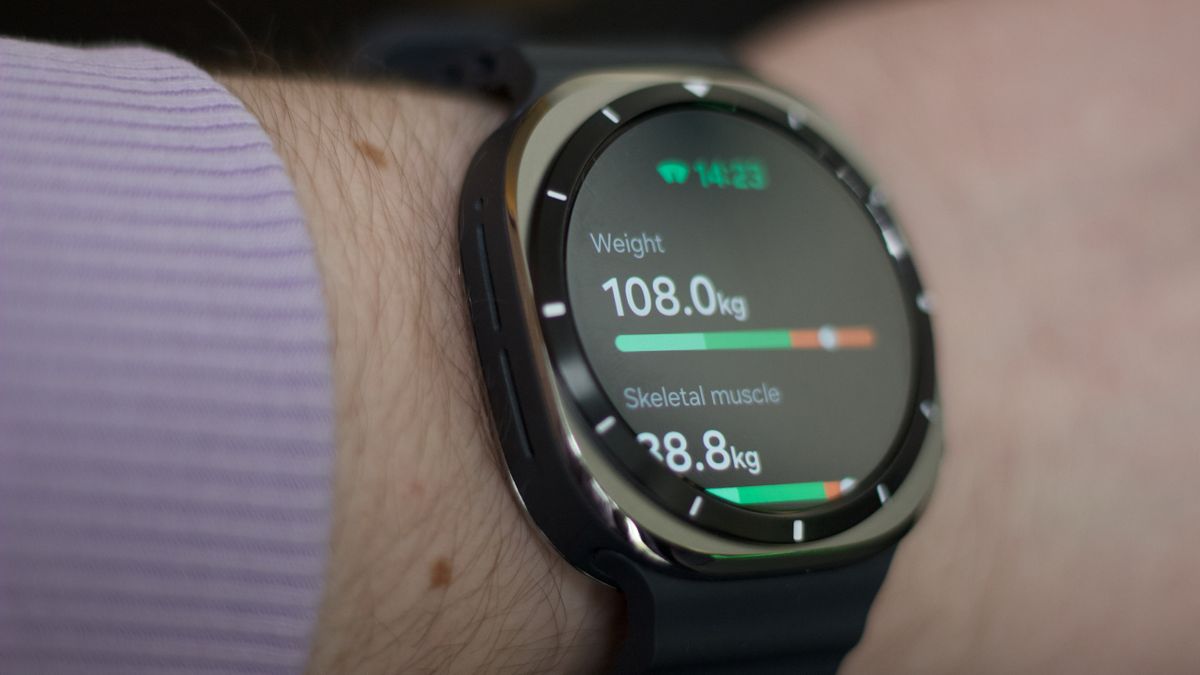Imagine leaving your office for lunch and coming across a truck with a guy casually sitting on a toilet in the middle of a transparent cargo space. Well, that's what happened to me and my colleagues yesterday, May 9, 2024, in London.
The strange scene is not part of a movie, a prank or a bet gone wrong. In reality, it is a provocative act of guerilla marketing by one of the best VPN providers on the market. “How much are you willing to share?” That's Surfshark's message, written in giant letters on the side of the truck in front of us.
Surfshark chose London to challenge people's tendency to compromise our privacy in today's digital landscape. Most of us are willing to post the most sensitive and private moments of our lives on social media platforms to get a few likes. However, counterintuitively, we have precise boundaries when it comes to the offline world, but perhaps that shouldn't be the case.
A data privacy paradox
A VPN, short for virtual private network, is security software that aims to increase online anonymity to hide activity. As such, it is part of Surfshark's daily routine to monitor all different issues related to online privacy.
The company has been outspoken about data breaches for a long time. For example, Surfshark's research team put together a data breach map that records incidents that have occurred over the past 20 years. The numbers are shocking: approximately 6.5 billion unique user accounts were compromised.
“Data breaches persist as a constant global threat. Since 2004, a total of 17.2 billion accounts have been compromised, and approximately 6.5 billion of them have unique email addresses. That means a single email address is compromised about 3 times on a global scale.” says Lina Survila, spokesperson for Surfshark.
These data are scary, but they are not completely new. The use of VPNs, antivirus software and similar tools shows that more and more people are aware of these online risks.
However, it is still not enough to stop people from using data-hungry services like Meta or Google, or from sharing personal information on the Internet on a daily basis. Even children cannot escape the shared activities of adults, which is the morbid fascination of broadcasting their childhood online. How many parents would install a public camera in their child's room in real life?
This friction between people's attitudes toward privacy in the offline and online world is known as the data privacy paradox. Surfshark's experiment aims to make people question why they feel comfortable sharing intimate data on their social accounts, but not this intimate (and more natural) act.
“The campaign aims to spark a debate about online privacy; just as you don't want your bathroom walls to be transparent, you shouldn't want third parties (and potentially malicious ones) to be able to easily access your data,” Survila said. she told me. “We want people to take their privacy seriously by being careful when sharing data online and using appropriate cybersecurity tools (such as a VPN and antivirus) when browsing the Internet.”
With our latest campaign in London, we want to challenge the way you think about online privacy! Why do people share their personal data online without a second thought, but don't share other intimate aspects of their daily lives? #PrivacyFirst👉 pic.twitter.com/ENiElj58hTMay 9, 2024
To spread its message, the company drove a single transparent truck with a bathroom to various locations in London throughout the day. While Tower Bridge was its main stop, Surfshark also visited busy office areas, including TechRadar, stopping for about half an hour at each location.
Surfshark's choice to run its awareness campaign in London doesn't happen in a vacuum either. The United Kingdom has witnessed a significant increase in data breach incidents since 2004, jumping to number 7 of the most affected nations worldwide according to Surfshark. The firm has estimated that a staggering one billion personal records have been exposed during this period.
“On average, each email address is leaked with three additional data points, amplifying the risk of personal information exposure,” the provider explained, adding that 238 million leaked passwords have also left 74% of users British users vulnerable to possible account takeover.
“We believed it was essential to draw attention to these alarming statistics. London's dynamic atmosphere provided an ideal backdrop to start crucial conversations about privacy and challenge the status quo,” Survila told me.
In fact, the campaign received a lot of attention in the streets, with people shouting in amazement and taking photographs.
This is not the first time Surfshark has come out with a provocative stunt to stir the public's conscience over privacy issues. The team installed a 2.5-metre-high pink pipe leaking thick green slime outside the new German headquarters of the “Big Five” tech giants in Munich in October last year. “Your data is being leaked. Protect your data online,” was the message.
“Despite minor differences, both campaigns share the central goal of making the concept of privacy, or lack thereof, more tangible,” Survila told me.
While the team does not intend to replicate the transparent bathroom campaign in other cities, Survila reiterates Surfshark's belief in leveraging shock value to effectively convey important ideas.
She said: “We're planning some more privacy-focused campaigns in London and New York, so stay tuned for updates!”
We test and review VPN services in the context of legal recreational uses. For example:
1. Access a service from another country (subject to the terms and conditions of that service).
2. Protecting your online security and strengthening your online privacy when abroad.
We do not support or tolerate illegal or malicious use of VPN services. Future Publishing does not endorse or approve the consumption of paid pirated content.









